
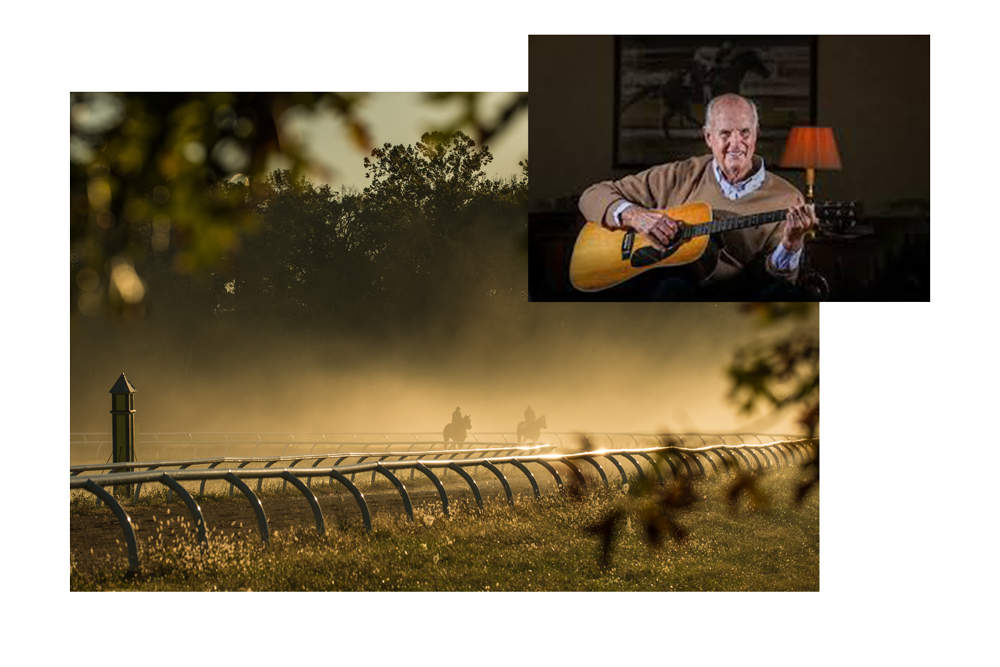
Stone Farm: For half of a century.

If you take care of the land,
the land will take care of you.
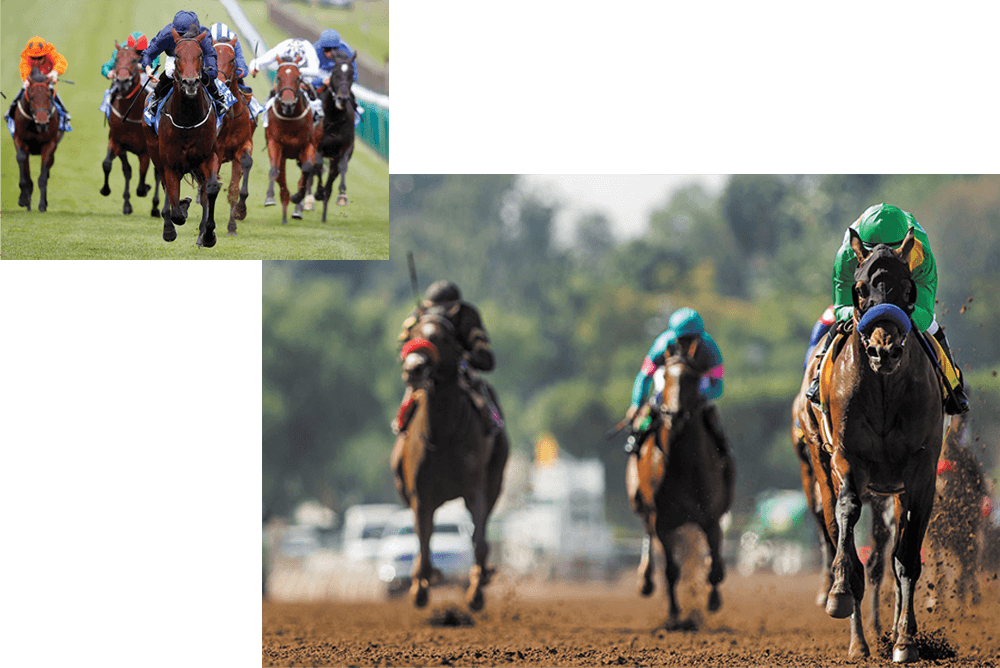
We’re trying to raise you a good horse.
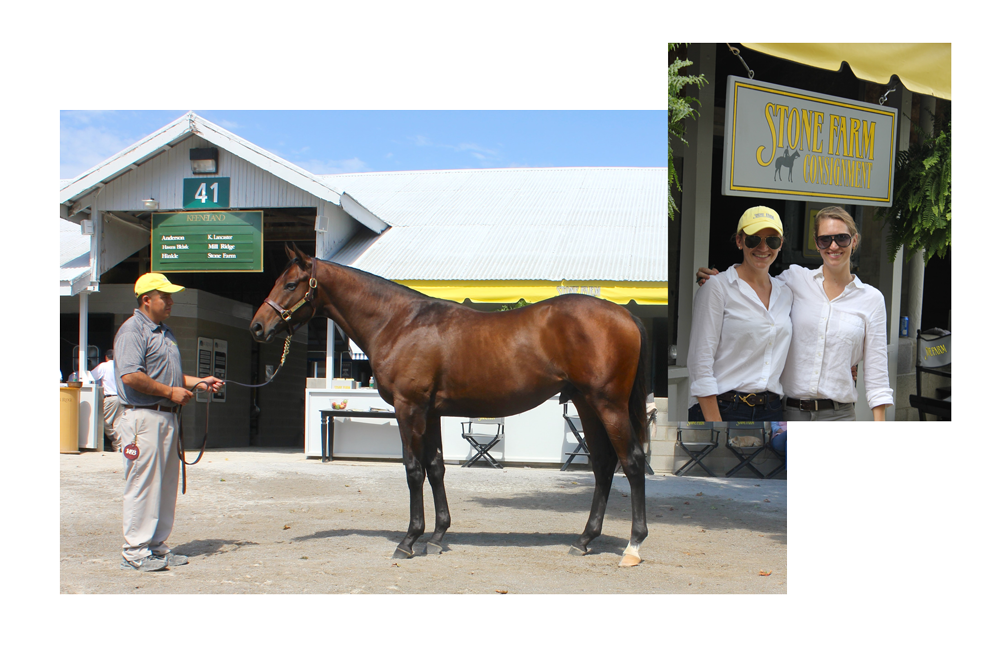
We sell only what we raise.
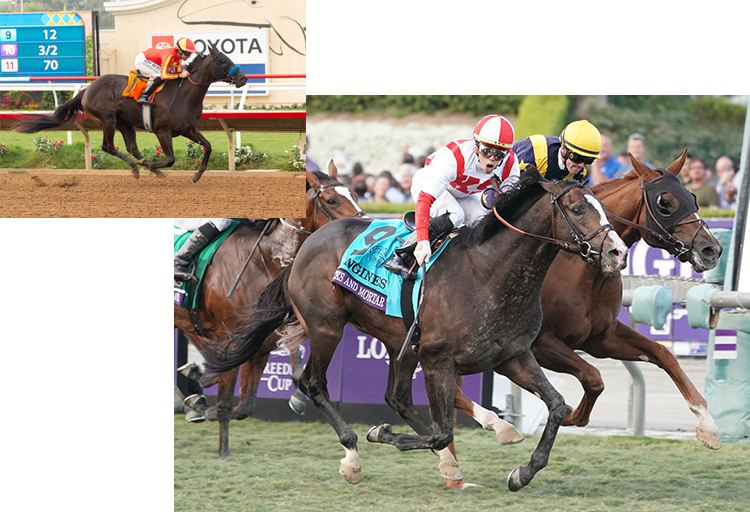
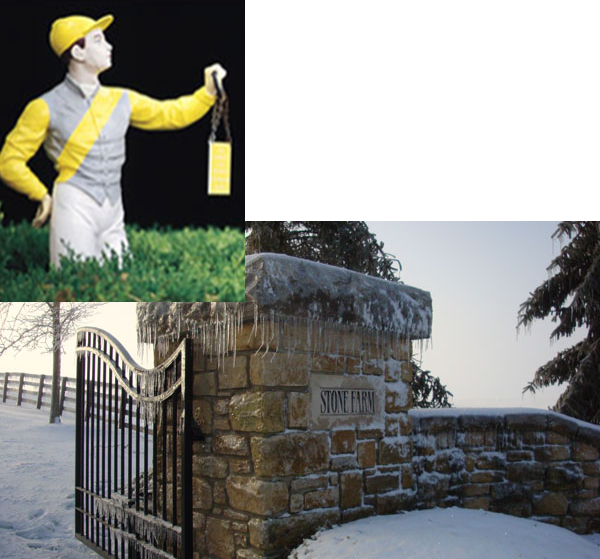
In a jewel of a dual at the Preakness, Sunday Silence beat Easy Goer by a snout.
Arthur Hancock stood on a chair in his box at Pimlico Race Course last Saturday afternoon, transfixed by the sight of his colt Sunday Silence, the Kentucky Derby winner, looming outside Derby runner-up Easy Goer on the turn for home. The outcome of the 114th running of the Preakness Stakes would be decided over the next 440 yards. As the two colts dueled down the stretch, first Sunday Silence and then Easy Goer moved ahead. They ran side by side, eyeball to eyeball, so close they brushed each other gently again and again. They even changed leads—switching from left leg to right—in unison, the black colt on the outside, the chestnut on the inside. The two jockeys, Pat Valenzuela on Sunday Silence and Pat Day on Easy Goer, went to their whips with opposite hands, furiously and rhythmically thrashing their mounts as they drove toward the wire.
Six jumps from the finish, Valenzuela put his whip away; a stride later, so did Day, and they hand-rode their colts home. At the wire, Sunday Silence seemed to be a nose ahead, but the photo-finish light flashed on the tote board.
A bewildered Hancock, ashen-faced and trembling, called out in a voice mixed with hope and dread, “Did we win? Did we win? What happened?”
The people around him shouted, “You won it! You won it!” But Hancock wasn’t convinced. “I don’t know if I won it,” he said, shaking his head. “I just don’t know.”
Sunday Silence’s trainer, Charlie Whittingham, had no doubts. The second the horses hit the wire, he was on his feet and heading for the winner’s circle. Easy Goer’s trainer, Shug McGaughey, was also certain and threw down his program in disgust.
But Hancock didn’t move. Finally, when the photo of the finish appeared on the infield TV screen and confirmed that Sunday Silence had won by a nose, Hancock began to work his way through the crowd. As he reached the top of the stairs leading to ground level, the OBJECTION light flashed. Day had claimed interference by Sunday Silence just before the turn for home; the stewards would have to make a ruling. Hancock, unsure of what to do, paused for a minute, then headed for the winner’s circle. At 5:47 p.m., 10 minutes after the race had ended, the OFFICIAL light was finally lit, and the record crowd of 90,145 roared. Sunday Silence had won the first two legs of the Triple Crown, and Hancock, 46, the somewhat eccentric owner of Stone Farm near Paris, Ky., began somewhat eccentrically to recite lines from a poem by William Cullen Bryant:
Truth, crushed to earth, shall rise again;
Th’ eternal years of God are hers;
But Error, wounded, writhes in pain,
And dies among his worshippers.
Puzzled onlookers asked one another what he was talking about. But then, people had been asking questions about Sunday Silence all week. He had bruised his right front foot on May 13, the result of either a stone or a misplaced nail in his shoe. A blacksmith and a veterinarian had been summoned from Kentucky to treat the horse. The injury and 13 straight days of rain in Baltimore had caused the colt to miss two workouts the week of the race, a major interruption of his training. There had been so much uncertainty about Sunday Silence’s health and his slow winning time in the Kentucky Derby that the bettors had sent him off as the 2-1 second choice.
The odds-on favorite was Easy Goer, who had a few questions to answer himself. Before the Derby two weeks earlier, where he had also been the favorite, Easy Goer had been talked about as the second coming of Secretariat. But he failed to fire on the muddy Churchill Downs track and finished 2 1/2 lengths behind Sunday Silence. It might have been that Easy Goer didn’t care for the off track or that he was running on the anti-inflammatory Butazolidin. (The only other time he used Bute was last November in the Breeders’ Cup Juvenile, where the colt also finished second on an off track at Churchill Downs.) All week, McGaughey had been asked to explain Easy Goer’s Derby loss. Was it the off track? The Bute? Something else? “I don’t have an answer,” said McGaughey, who added that Easy Goer definitely would not be on the drug for the Preakness.
Saturday dawned hot and sunny, and the newly resurfaced track at Pimlico was playing fast. When the gates opened for the Preakness at 5:35 p.m., Easy Goer broke slowly, and Sunday Silence was bumped by 33-1 shot Northern Wolf, who raced to the front just ahead of Houston. At the half-mile mark Houston surged to the lead, with Sunday Silence in third place and Easy Goer in fifth. Then Day kicked Easy Goer into high gear and made a monster move on the outside, passing Houston and pinching off Sunday Silence to grab the lead after three quarters of a mile. It appeared to be the decisive move of the race, as Houston faded and Sunday Silence had to be checked, losing momentum. But Valenzuela took his horse outside and put on a move of his own, surging to catch Easy Goer on the turn. The two colts rounded for home together and began a stretch duel that will be talked about for years. They crossed the finish line a scant nose apart in 1:53[4/5] for the 1[3/16]-mile distance, the third fastest Preakness in history.
Valenzuela was euphoric in the winner’s circle. “The stretch run was the battle of the century!” he whooped. “It’s the ultimate, it’s the biggest high in my life! It’s the best race in the history of horse racing, as far as I’m concerned.”
A few moments later Hancock caught up with his jockey, and they headed through the clubhouse together on their way to the press box. It was a moment of vindication for both of them. For months, racing reporters in the East had concentrated so much attention on Easy Goer that Sunday Silence, who had raced almost exclusively on the West Coast, seemed to catch them off guard at the Derby. The continental divide was so sharp for the Preakness that bettors watching the race broadcast at Hollywood Park in Los Angeles installed Sunday Silence at odds of 6-5, while bettors watching at Belmont in New York had him as a long shot 3-1, an unusually wide disparity. As he met the press after the race, the delighted Hancock took advantage of the moment to recite something new, this time from Aretha Franklin: “R-E-S-P-E-C-T, Found out what it means to me….”
Whittingham, meanwhile, was looking toward the Belmont Stakes on June 10 and the prospect of his first Triple Crown winner. Will the Belmont be another match race? he was asked. “I hope so,” he replied. “I think Sunday Silence will run a mile and a half, because he’s got that long, easy way of running, and he’s got a lot of that Mahmoud blood, and that line can run forever.”
It is likely to be not only a match race, but also Affirmed-Alydar redux. In 1978 those two great horses—Affirmed from the West and Alydar from the East—galvanized the world with their duels in the Triple Crown races, finishing one-two, Affirmed-Alydar, in all three. Easy Goer is a son of Alydar, and so far he seems to be following in his father’s footsteps. That irony is not lost on McGaughey. “I guess I’m going to start hearing a whole lot of Affirmed-Alydar talk,” he said as he stood outside his barn after the Preakness. “In the Belmont, you’ve got a horse that’s going to try and win the Triple Crown. And a horse that’s going to try to stop him.”
